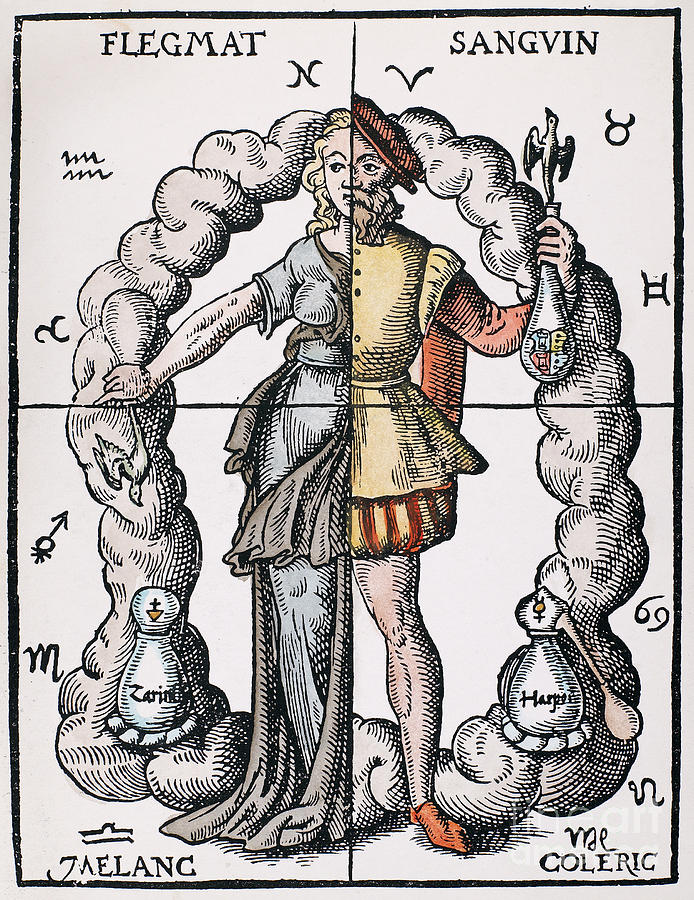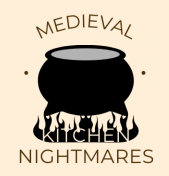While recipes are now considered as mainly for making tasty dishes, in medieval times they also functioned as medicines to cause and maintain the good health of those ingesting them. The cooks of great lords would need to be especially vigilant, knowing the humours of all the different ingredients that passed through their kitchens and how they would react with eachother. Sauces and condiments made up of different spices were used to correct humoural imbalances in dishes and make the overall meal more easily digested (Taillevant & Scully, 1988). Unlike modern sauces, which are generally made of the same sort of ingredients as the dish they are going on (e.g. gravy on meat), medieval sauces were often meant to contrast in an effort to balance the humours of the dish.
Cooking methods were also used to compliment the humours of the cooked food, for example beef (a dry meat) was generally boiled, and pork (a wet meat) is generally roasted. Humoural theory is demonstrated in our cooking of the Cinnamon Brewet in which we stewed our beef and added ginger, one of the only spices considered “wet” (Taillevant & Scully, 1988).

Image from Classical Wisdom
https://classicalwisdom.com/science/medicine/the-humours-of-hippocrates-which-one-are-you/
Our recipes for barley water and almond milk come from a section in Le Menagier dedicated to “Beverages for the Sick”, demonstrating the role of recipes in medicine. There is also a section on “pottages for the sick”, pottage being an umbrella term for stew type dishes (Greco & Rose, 2009).
References
Greco, G. L., & Rose, C. M. (2009). The Good Wife’s Guide (Le Ménagier de Paris): A Medieval Household Book. Cornell University Press.
Taillevent, & Scully, T. (Ed). (1988). The Viandier of Taillevent: An Edition of all Extant Manuscripts. University of Ottawa Press.
